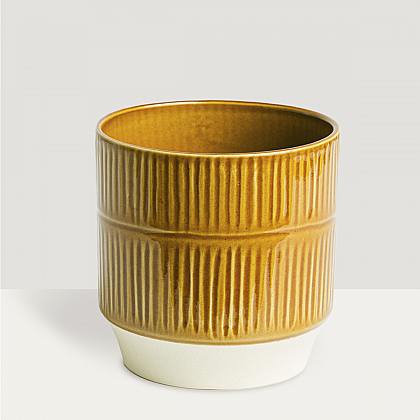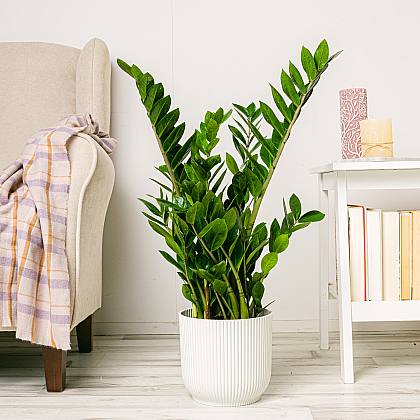Boost Your Houseplant's Health With Natural Worm Compost
As a plant enthusiast and avid gardener, I've always been fascinated by natural methods to nourish and care for my houseplants.

As a plant enthusiast and avid gardener, I've always been fascinated by natural methods to nourish and care for my houseplants.
One method that stands out is using worm compost. It's sustainable and mimics how plants are naturally fed. The benefits are numerous, from improving soil enrichment to making roots stronger.
In this article, I'll share methods and frequency of applying worm compost, as well as choosing the right compost.
By incorporating worm compost, your houseplants can thrive and flourish naturally.
Benefits of Using Worm Compost
One key benefit of using worm compost for houseplants is that it provides a natural and nourishing source of nutrients. Worm compost, also known as vermicompost, is rich in essential minerals and organic matter that can greatly benefit the growth and health of houseplants.
When applied to the soil, worm compost mimics the way plants are fed in their natural environments, resulting in stronger and well-nourished roots. This, in turn, leads to healthier and more vibrant houseplants.
Additionally, worm compost improves soil aeration and enrichment, increases microbial activity, and reduces the need for synthetic fertilizers.
To make worm compost at home, you can start by setting up a worm bin and adding kitchen scraps and yard waste. The worms will break down the organic matter, creating nutrient-rich compost that can be used to nourish your houseplants.
Methods of Applying Worm Compost and Compost
I prefer to apply worm compost and compost to my houseplants using various methods. Two common methods are top dressing and mixing with potting soil.
Top dressing involves sprinkling a thin layer of worm compost or compost on the soil surface. This allows the nutrients to slowly seep into the soil and reach the plant's roots.
Mixing with potting soil involves blending worm compost or compost with potting mix before planting. This ensures that the plant receives a nutrient-rich soil right from the start.
Another way to utilize worm compost and compost is by creating nutrient-rich liquid fertilizers. Two popular methods are brewing compost tea and making compost extract.
Brewing compost tea involves soaking worm compost or compost in water for a period of time, creating a liquid fertilizer that can be applied directly to the soil.
Making compost extract involves mixing worm compost or compost with water and then straining the liquid to use as a foliar spray. This allows the nutrients to be absorbed by the leaves and stems of the plant.
Using a combination of these methods will provide your houseplants with the necessary nutrients to thrive.
Frequency of Feeding Houseplants
To maintain the health and vitality of my houseplants, I ensure a balanced nutrient supply by feeding them with worm compost or compost every 2-3 months. This optimal feeding schedule allows the plants to receive a steady supply of nutrients without the risk of overfeeding.
Overfeeding can lead to nutrient imbalances or root damage, so it's important to monitor the plants' growth and health to determine if additional feedings are necessary. Signs of overfeeding include stunted growth, yellowing leaves, or wilting.
Choosing the Right Worm Compost and Compost
When choosing the right worm compost and compost for my houseplants, I look for products specifically labeled for use with houseplants and ensure they're fully decomposed and free from pathogens or weeds. Quality control is essential in worm compost and compost production to ensure the effectiveness and safety of the product.
Here are some factors to consider when making your choice:
Vermicompost vs. traditional compost:
Vermicompost, which is compost produced by worms, is known for its high nutrient content and microbial activity, making it a popular choice for houseplants.
Traditional compost, on the other hand, may have a lower nutrient content but is still beneficial for enriching the soil and improving plant health.
Organic and moisture content:
Opt for organic worm compost or compost to avoid synthetic chemicals or additives that could harm your plants.
Check the moisture content of the worm compost or compost to ensure it's suitable for houseplants.
Additional Tips for Using Worm Compost and Compost
To maximize the benefits of worm compost and compost for my houseplants, I always remember to store them in a cool, dry place to maintain their quality and effectiveness.
Storing compost properly is important because it helps prevent moisture buildup, which can lead to mold or bacterial growth. It's best to keep the compost in a sealed container or bag to protect it from pests and maintain its nutrient content.
Another tip is to create a DIY composting system. This can be done by using a small bin or container and adding kitchen scraps, yard waste, and shredded paper or leaves. Turn the mixture regularly to promote decomposition and create nutrient-rich compost for your houseplants.
Importance of Monitoring Soil Ph Level
I always keep a close eye on the pH level of my houseplant's soil to ensure optimal nutrient absorption and overall health. Monitoring soil pH level is crucial because it determines the acidity or alkalinity of the soil, which directly affects the availability of nutrients to the plants.
Here's why testing soil acidity is important:
Nutrient availability: Different plants have different pH preferences. Monitoring the pH level allows me to adjust the soil's acidity to match the specific needs of my houseplants, ensuring that they can efficiently absorb the necessary nutrients.
Preventing nutrient deficiencies: Imbalanced pH levels can lead to nutrient deficiencies, even if the soil contains adequate nutrients. By regularly testing the soil's pH, I can identify and address any imbalances before they negatively impact my plants' health.
Incorporating worm compost into your houseplant care routine is a natural and effective way to boost the health of your plants. By providing sustainable nutrients and mimicking their natural environment, worm compost improves soil aeration, strengthens roots, and reduces the need for synthetic fertilizers.
With various methods of application and the right choice of compost, you can ensure that your houseplants thrive and flourish naturally. So start using worm compost today and watch your plants thrive!


